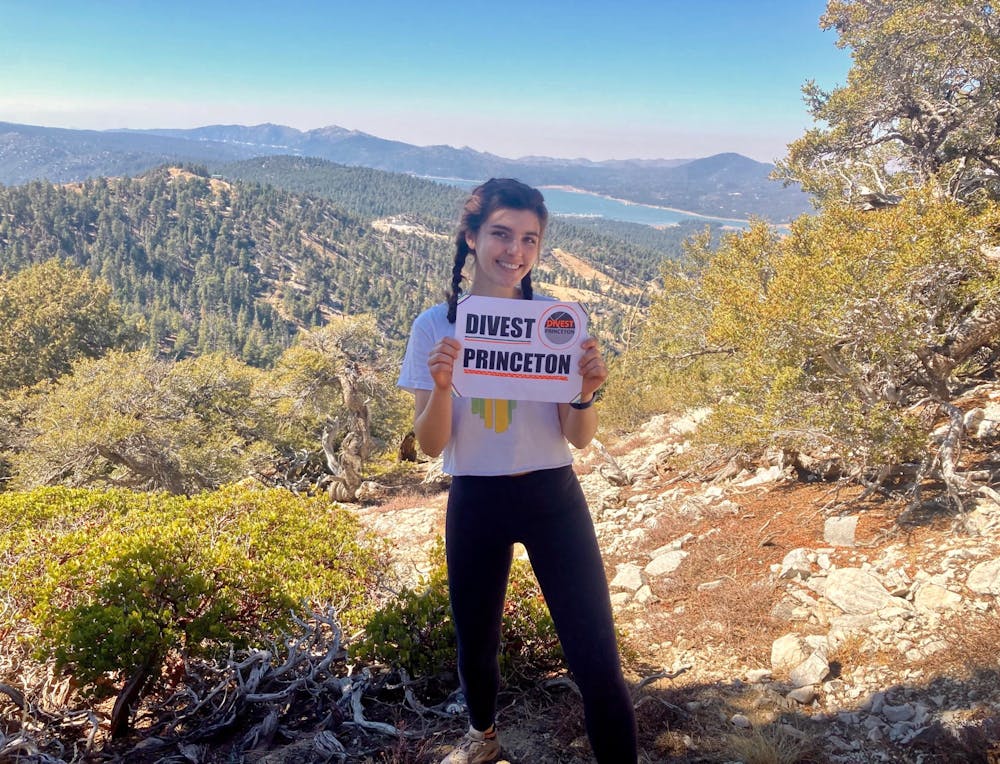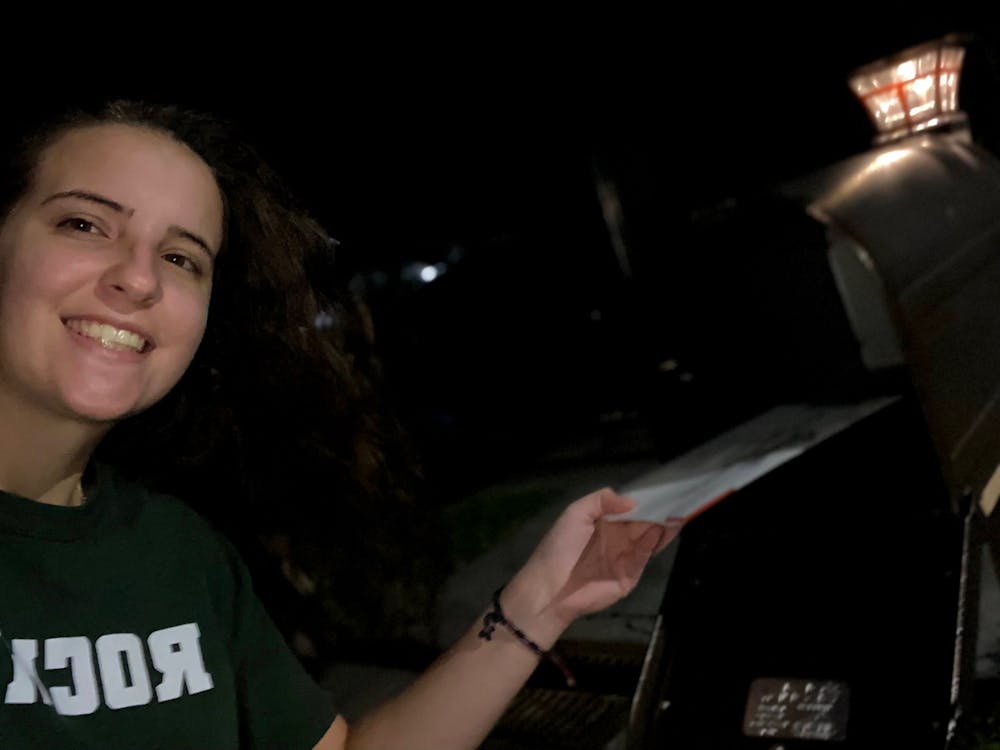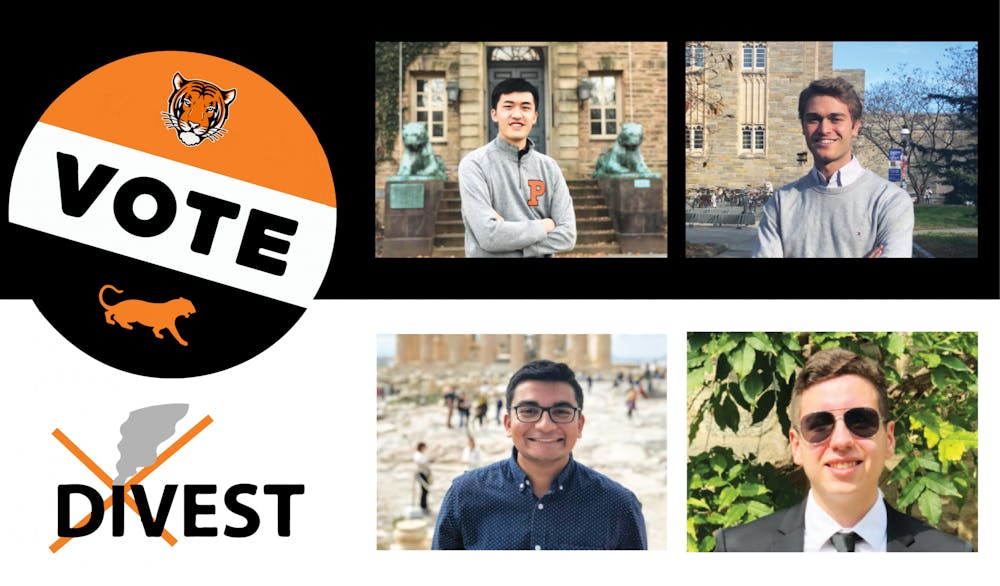Allen Liu ’22 and Christian Potter ’22 have begun campaigning for the position of Undergraduate Student Government (USG) President, with voting to begin next week.
The 2020 Winter Election will take place Nov. 23–25. The ballot will also include contested races for Vice President, Sustainability Chair, Treasurer, and Class of 2024 Senator, in addition to referenda addressing class on Election Day and fossil fuel divestment.
The election and all campaigning will take place virtually, and many candidates have already launched unique campaigns through social media platforms such as Instagram and Facebook.
Potter’s platform pointed toward his experience as USG Academics Chair for the past year, advocating for a pass/D/fail (PDF) grading option for all courses within the spring semester and bringing a range of perspectives on grading toward administrators.
Liu similarly cited his work as U-Council Chair, working a variety of projects centered around mental health and the pandemic.
Both platforms emphasized USG’s role as a bridge between students and administrators and called for transparency and engagement.
Liu specifically plans to publicize the work of USG task forces to create more opportunities for engagement, solicit student ideas for task force proposals, draft an “administrator guide” to help students identify the right individuals to voice concerns to, and sustain communication campaigns around important areas of advocacy.

“My vision is for a participatory USG that creates opportunities to engage with administrators and USG’s work,” Liu wrote in an email to The Daily Princetonian. “I want to use administrator town halls and focus groups more frequently to collect and relay student input on University policies and to allow anyone to propose projects and task forces for USG.”
Potter’s platform similarly plans to organize further Q&A sessions with administrators undertaking important decisions, add to initiatives such as USG office hours, and “elevate the voices of students of different racial and ethnic backgrounds to inform conversations on racial inequities at Princeton.”
“Let’s face it: while we are all doing our best to cope, students are suffering,” he told the ‘Prince.’ “And if USG can work with the administration to relieve even a little bit of that suffering, then I believe we must and I will make sure that we do.”
Student engagement central to executive platforms

There are also two candidates for Vice President: Ashwin Mahadevan ’22 and Juan Nova ’23. Mahadevan currently serves as the interim vice president, appointed in September after Andres Larrieu ’23 resigned at the beginning of the semester. Nova currently serves in the Senate as a U-Councilor.
Both candidates also emphasized accountability and community engagement in their platforms.
Mahadevan told the ‘Prince’ that “in order to be accountable, we must hear all students’ opinions and needs and shape our advocacy and policy efforts around them.”
Nova also said that “the best way for USG to serve the students is to know the concerns that students are bringing to the table and from there we can see how best we can serve them.”
Austin Davis ’23, who currently serves as USG’s historian and as a member of the Academics Committee, is the only candidate for Academics Chair.
Davis’ candidate bio indicates an intention to “work on implementing mixed concentrations, reforming the PDF options, and working to implement a summer session that meets students’ needs.” He also plans to prioritize “advocating for increased flexibility to meet current student conditions to ensure equitability in learning outcomes for the coming spring semester and beyond.”
Davis did not respond to a request for comment at the time of publication.
Three candidates have begun campaigning for Treasurer, with the most diverse group of candidates in regards to class years. Turquoise Brewington ’22, Ryan Cho ’23, and Shrey Addagatla ’24 are all in the running for the position. Brewington and Cho currently serve as senators for their respective classes.

From left to right: Ryan Cho ’23, Shrey Addagatla ’24, and Turquoise Brewington ’22.
Photos courtesy of Cho, Addagatla, and Brewington
The platforms for these candidates are focused on implementing specific fiscal goals and programs.
For example, Brewington hopes to create and fund a Princeton Affiliate of Textbook Exchange Network (TEN), a program that has made textbooks more affordable and accessible to students across the United States and the United Kingdom. Brewington also plans to “strategically allocate funding to ensure a surplus for special events like the Anti-Racism Book Initiatives,” according to her candidate bio.
Cho’s platform centers around offering “greater flexibility” in the events USG hosts. He told the ‘Prince’ that the most important issue to him is ensuring that students “feel financially supported” as they return to campus.
“Our clubs and programs constitute a major aspect of the Princeton experience, so getting it back on track will be my top priority as Treasurer,” he said.
Addagatla similarly sees initiatives involving student groups as the most important part of his platform, which calls for effective spending on “initiatives that genuinely benefit the students rather than a virtual social that has minimal turnout.”
“I think that’s the most important thing that the Treasurer can do is allocate funds, with Senate approval, to student groups, the life of the university,” Addagatla told the ‘Prince’.
Three students are running for the position of Sustainability Chair: Mayu Takeuchi ’23, Ipsita Tingi ’23, and Joshua Arce ’24.

Mayu Takeuchi ’23, Ipsita Tingi ’23, and Joshua Arce ’24 (left to right)
Photos courtesy of Takeuchi, Tingi, and Arce
Takeuchi, who currently works with the NJ Environmental Justice Alliance (NJEJA), told the ‘Prince’ that her primary goal is inclusivity in sustainability.
“I want to make space for nontraditional, meaningful dialogue about sustainability in tech, the economy, health, international cultures, and more,” Takeuchi stated.
Tingi’s platform centers around promoting sustainable practices on and off campus and ensuring that giveaways and events are more eco-friendly. She said her main focus is on engaging with the student body.
“I want to make sure we are able to hear every student, to hear their input and reach every student to provide resources to help them be more sustainable,” she wrote to the ‘Prince’.
Arce said he is focused on sustainability during remote learning. His ideas in this realm include encouraging the minimization of unnecessary energy use, improving composting practices, and providing “sustainability starter packs” to students — “including reusable items like bamboo toothbrushes.”
“To make campus more sustainable, especially during distance learning, means not only to improve sustainability among the physical campus, but to enhance our individual awareness of the actions we can take in reducing our impact on the planet,” Arce said.
One contested Senate race, another without candidates
For the Class of 2024’s Senate election, six students are running for two seats.
Multiple candidates’ platforms focus on accountability between USG and the student body.
“I think, especially given Princeton’s current online format, having open forums where students can voice their concerns on all topics is very important,” Mariam Latif ’24 told the ‘Prince.’
“Having a better platform to reflect student voices is more critical than ever, and one of my priorities is to have the student body connect with USG in a more personal and meaningful way to truly improve transparency across the board,” Jerry Jiao ’24 added.
Sean Bradley ’24 discussed academic calendar reform for the mental health of students.
“To not give the student body adequate breaks and periods of rest guarantees the deterioration of our mental health,” Bradley wrote to the ‘Prince.’ “We need an academic calendar that allows us to maintain a healthy mental being.”
Josh Rogers ’24 was similarly concerned with mental health in his platform, stating that “Princeton is very academically strenuous and very stressful … especially during this time, when we’re dealing with COVID.”
“There’s a lot of mental health issues going around … [so] we need to expand the amount of in-network and out-of-network providers that students can go to,” Rogers told the ‘Prince.’
Lauren Fahlberg ’24 and Tony Owens ’24, the two other candidates in the race, did not reply to requests for comment from the ‘Prince’ at the time of publication.
Fahlberg wrote in her candidate statement, “In order to represent our class interests in Senate meetings, I want to send you monthly polling and updates so that I can represent your interests.”
“My platform will focus on making sure that our class gets to experience all the traditions of Princeton in a memorable, yet safe way,” Owens wrote in his candidate statement.
Two students, Reade Ben ’22 and Bradley Phelps ’22, are running unopposed for the Class of 2022 Senate seats. Phelps, who currently serves in the role after being appointed in February, told the ‘Prince’ he looks forward to assisting USG in eventually helping students return to campus.
“There is a lot of thinking and preparation to do before then, like how ’24s adapt and what resources are available to help them,” Phelps said. “USG needs to think about how we can listen and be there for the people.”
Ben added that he hopes to bring “clarity in an online semester” while serving on USG.
“My inbox is always flooded and half the time I’m finding out about things and deadlines when it’s almost too late,” he said.
No students are running for the Class of 2023 Senate seats, current USG President Chitra Parikh ’21 confirmed in an email. The next USG administration will appoint students to those positions following an application process, according to Mahadevan.
Referenda address fossil fuels and voting
Two referenda will also appear on the winter ballot, the first calling for the declaration of Election Day a University holiday, and the second calling on the Trustees of Princeton University and the Princeton University Investment Company (PRINCO) to divest from fossil fuels.
Students had until Nov. 15 to form an “opposition party” to either or both of these referenda. USG’s Election Team confirmed that no opposition parties were formed by the deadline.
Referendum question no. 1 was sponsored by Joe Shipley ’22, and the second question was sponsored by Anna Hiltner ’23 on behalf of Divest Princeton.
In an email to the ‘Prince,’ Hiltner explained that “Divestment is in the best interest of the University ethically and financially” and implored undergraduates to vote yes because “lending fossil fuel companies financial and repetitional support gives them a legitimacy that delays urgent reform and makes Princeton complicit in their conduct.”

Anna Hiltner '23 representing Divest Princeton.
Photo courtesy of Anna Hiltner
Shipley told the ‘Prince’ that “Passing this referendum would be a win for student voters and for civic engagement on campus.”
“All of the get-out-the-vote efforts and all of the resources devoted to increasing turnout won’t matter if people don’t actually have the time to go to the polls,” he said.
Both sponsors emphasized that the referenda questions posed are not new demands among the student body. Divest Princeton’s open letter calling for “No Donations until Divestment,” originally published in 2019, has accumulated 1,706 signatures from alumni, students, faculty, staff, and parents. Sixty-two University employees have formally endorsed the movement.
“Students have been calling for fossil fuel divestment for years and the climate crisis has only gotten worse,” Hiltner said.
Similarly, Shipley noted that “This resolution should have been circulated a long time ago.”
“Or, better yet, it shouldn’t have had to be a resolution at all,” he added. “Election Day should have been a holiday from the start.”
However, there is also a newfound sense of urgency in passing both referenda.
“This past election cycle has shown how difficult and even dangerous it can be to vote, and how many unnecessary obstacles there are to political participation,” Shipley told the ‘Prince.’ “Princeton has the chance here to lead by example, showing other institutions that they should do everything in their power to make voting easy, convenient, and safe.”
Hiltner added that with the current political climate and the rise of the pandemic, “a lot of people are starting to see how the climate crisis, pandemic, and fight for racial justice are interconnected and exacerbate systems of oppression that hurt Black, brown and indigenous communities.”
Sponsors of both referenda are optimistic that they will pass. In an email to the ‘Prince,’ Shipley stated that he and two former Vote100 Fellows — Ana Blanco ’23 and Abigail Poten ’23 — were “thrilled to see that people seemed to be very excited about this referendum.”

Ana Blanco ’23 casting her ballot.
Photo courtesy of Blanco
Five hundred signatures were required to put a referendum question on the USG Winter election ballot, and Shipley noted that it took them “about a day” to receive the required amount.
Similarly, Hiltner noted that “In the last year, a growing number of undergraduate students have been showing a desire for the university to take action through divestment” and cited the ‘Prince’ frosh survey, which demonstrated that only 5.4 percent of first-years were against divestment, 56 percent were in favor, and 38.8 percent had no opinion or needed more information.
While the Council of the Princeton University Community (CPUC) Resources Committee is already discussing a proposal from Divest Princeton, Hiltner said she hopes having the referendum question on the ballot will help to increase awareness about divestment to students who do not currently have enough information on the topic.
Voting will open on Monday, Nov. 23, at noon and end on Nov. 25 at noon.








